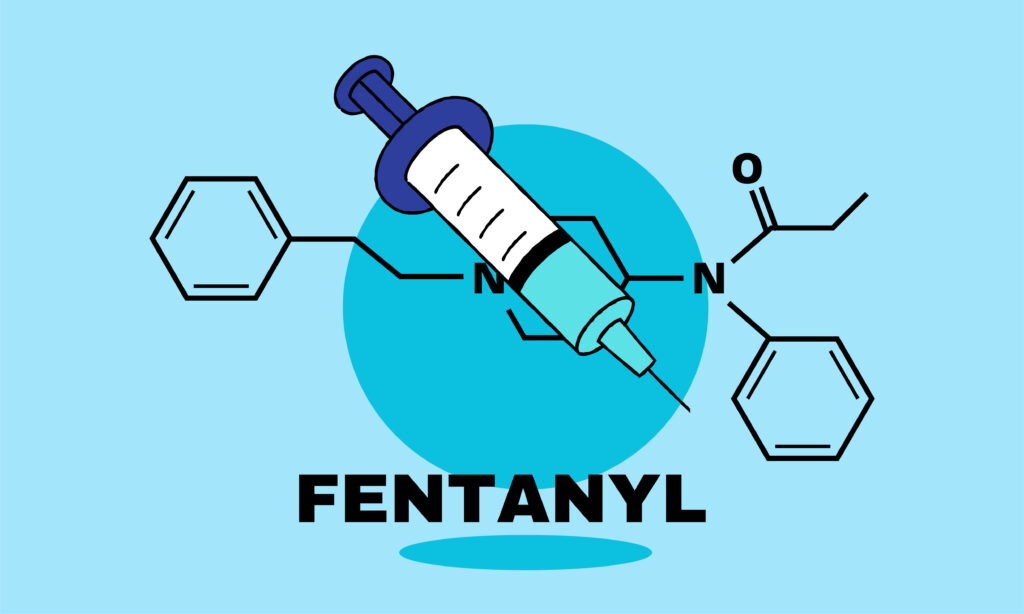Fentanyl is one of the biggest challenges we face as a society. In 2022, fentanyl was responsible for approximately 200 deaths per day in the United States, totaling 73,654 fatalities that year.
So, what is fentanyl? It’s an incredibly strong synthetic opioid that is much more powerful than morphine, and it’s mainly used in medical settings to manage pain. It’s commonly recommended for individuals who are experiencing intense pain, particularly following surgical procedures, or for those who have ongoing pain conditions. The high potency of this substance has made it susceptible to abuse, increasing addiction and overdose incidents. Fentanyl’s effects are quick and powerful, leading to a significant risk of dependence and addiction. It’s important to grasp the nature of fentanyl and how it affects the body to understand the difficulties that come with withdrawal.
How Long Does it Take to Detox from Fentanyl?
So, how long does fentanyl withdrawal last? The length of fentanyl withdrawal can differ from person to person, depending on various factors such as the duration of fentanyl use, dosage, and individual health conditions.
Withdrawal symptoms from fentanyl can start within just a few hours after the last dose. Typically, the initial stage of withdrawal can range from a few days to about a week. But it’s worth noting that certain symptoms can linger for weeks or even months in what experts call post-acute withdrawal syndrome (PAWS).
As withdrawal progresses to the peak phase, usually around 24–72 hours after the last dose, symptoms reach their most intense. During this period, fentanyl withdrawal symptoms include severe nausea, vomiting, diarrhea, and pronounced psychological distress.
Following the peak phase, symptoms gradually begin to subside in what is known as the late withdrawal phase. This stage can last for several days, during which the physical symptoms start to diminish, but psychological symptoms such as anxiety, depression, and cravings may persist.
The final stage is the post-acute withdrawal phase, where individuals may continue to experience psychological symptoms for weeks or even months. This stage requires ongoing support and management to prevent relapse and ensure long-term recovery.
Managing Fentanyl Withdrawal
Managing fentanyl withdrawal is a complex process that requires both medical and psychological support. It’s often recommended that people do not attempt to detox from fentanyl on their own due to the severity of the symptoms and the risk of complications.
Getting medical supervision during withdrawal can create a safer and more comfortable experience. Healthcare providers can give you medications to help with the withdrawal symptoms. These can include anti-nausea meds, sleep aids, and pain relievers that aren’t opioids.
Seeking counseling and therapy can provide valuable support for individuals dealing with the emotional and mental difficulties of withdrawal. Therapeutic approaches like cognitive-behavioral therapy (CBT) can offer helpful strategies to manage cravings and avoid relapse. Support groups, whether you join them in person or online, provide a great sense of community and shared experience that can really help you through the withdrawal process, no matter how long fentanyl withdrawal does last.

Treatment Options for Fentanyl Detox and Withdrawal

There are various treatment options for fentanyl detox and withdrawal, all designed to cater to the unique needs of each person. Inpatient detox programs provide a structured and supervised environment where you can receive comprehensive care. These programs offer medical monitoring, medication management, and access to various therapies and support services. Inpatient programs are particularly beneficial for those with severe addiction or co-occurring mental health conditions.
Outpatient detox programs offer similar services but allow individuals to live at home while receiving treatment. This option offers greater flexibility for individuals with commitments that make it difficult for them to participate in an inpatient program. Outpatient programs continue to provide medical supervision, counseling, and support groups, making it a great choice for many.
MAT is a great option for effectively managing fentanyl withdrawal. MAT involves the use of medications like methadone, buprenorphine, or naltrexone that can help alleviate withdrawal symptoms and cravings. These medications are typically used alongside counseling and behavioral therapies to help with long-term recovery. Research has demonstrated that MAT can enhance treatment retention and lower the likelihood of relapse.
Seeking Support for Fentanyl Withdrawal and Addiction
How long does fentanyl withdrawal last? It all depends on getting help, which is a crucial part of overcoming fentanyl withdrawal and addiction. Recovering can be quite a journey, but having the right support can make a big difference. Friends and family members are crucial in offering emotional support and encouragement. Loved ones need to have a good understanding of fentanyl addiction and withdrawal so they can provide effective and caring support.
Healthcare providers, counselors, and therapists are experts who offer medical care, therapeutic interventions, and guidance every step of the way in your recovery journey. They can help you develop coping strategies, address underlying issues that contribute to addiction, and create a comprehensive recovery plan.
Support groups, such as Narcotics Anonymous (NA) or other peer support groups, offer a sense of community and understanding. Sharing experiences with others who have gone through similar struggles can be incredibly validating and motivating. These groups offer a space for people to share their emotions, gain perspectives, and receive support from others who are going through similar experiences.
Overcoming fentanyl withdrawal and addiction is challenging, but understanding the nature of fentanyl and the fentanyl withdrawal timeline is the first step. Recognizing and managing withdrawal symptoms, seeking professional treatment, and finding support from loved ones and peers are all crucial components. With dedication, support, and proper care, individuals can overcome fentanyl addiction and move towards a healthier, drug-free life. Reach out to us today at Her Harbor to get the process started.
How to Get Help
If you or someone you know is seeking trauma-informed care for mental health and substance abuse, Her Harbor provides a compassionate and comprehensive approach to recovery. Our dedicated team is trained in trauma-informed practices, offering a range of services from residential treatment to outpatient support. Contact Her Harbor today to learn more about how we can support you or your loved one on the path to healing and recovery. Together, we can navigate trauma and substance abuse with care, understanding, and hope.

Stephanie Patrick-Calvillo, PMHNP-BC, is a dedicated and compassionate board-certified Psychiatric Mental Health Nurse Practitioner with experience providing mental health care across diverse populations and clinical settings. With a strong background in both outpatient and inpatient psychiatric care, Stephanie is committed to fostering a supportive and collaborative therapeutic environment. She integrates evidence-based medication management with psychoeducation and lifestyle interventions to promote holistic well-being.
